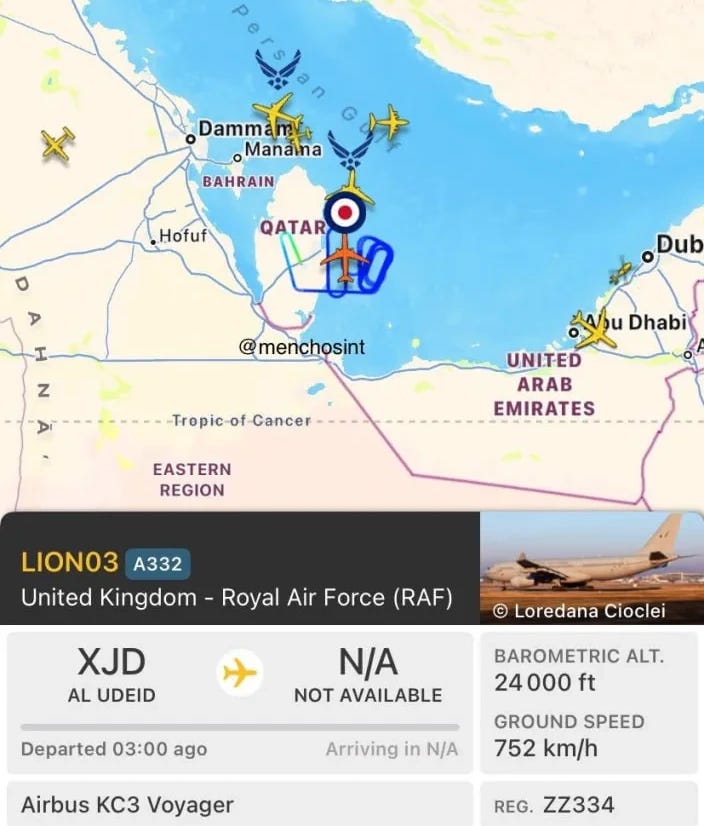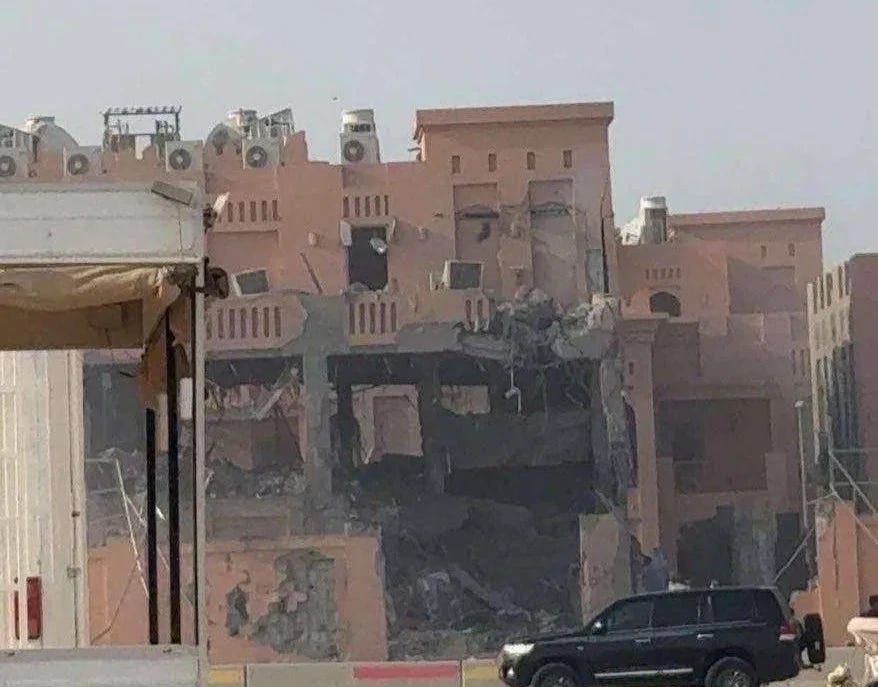Israel Bombs Qatar: Negotiations For Peace In Gaza Have Been Abandoned Through More Israeli Violence
Doha, Qatar — September 9, 2025
Update September 9, 19:17 - Qatar have confirmed that a member of their internal security service has been killed in the attacks today.
Israel has carried out an unprecedented air strike in the heart of Doha, launching at leaset ten bombs on a building housing Hamas negotiators as they discussed a US-backed ceasefire proposal. Explosions shook the Qatari capital, with plumes of smoke covering the skyline and videos capturing the moment of impact. The attack all but eliminates the narrative that Israel has ever been open to a ceasefire in Gaza, as the only people who could negotiate that peace came under direct assault in a third country.
For hours confusion reigned: early reports suggested the delegation was dead; later confirmation from Al Jazeera and Hamas officials stated the negotiators survived. Israeli Channel 12 admitted the strikes occurred while the delegation were considering the US proposal for a ceasefire.
Multiple sources, both Arabic and Hebrew, now agree on three major points: the Hamas team survived, the United States gave the green light, and Israeli jets conducted the assault.
The attack coincided with the presence of a UK Royal Air Force plane circling above Qatari airspace minutes beforehand, raising further questions of coordination and complicity.
This was a deliberate bombing of a foreign capital, a US ally and host of Al-Udeid Air Base, during active negotiations. The legal framework is clear: Israel grossly violated international law. Article 2(4) of the UN Charter prohibits the use of force against the territorial integrity or political independence of any state. Doha was not a war zone. The attack was an act of aggression, which occurred during a period when Israel pretended they were open to a peace agreement, an idea that is now fact-checked through Israeli military action.
UN Secretary-General António Guterres condemned Israel’s “blatant violation of Qatar’s sovereignty and territorial integrity.” Qatar called it a “cowardly criminal assault.” Saudi Arabia warned of “dire consequences” and declared readiness to support Qatar “with all capabilities.” Turkey, Kuwait, Oman, China, Egypt, Jordan, Lebanon, Algeria, the UAE, and Iran issued their own condemnations.
Just 2 hours after the attack, Qatar announced it would withdraw permanently from its role as mediator in the Israel–Hamas negotiations, effectively killing the last viable diplomatic channel, which seemed to have been the goal of the Israeli attack.
The assault lays bare Israel’s contempt for diplomacy. Hours before the strike, Israel demanded that all Palestinians evacuate Gaza City. Then it attempted to assassinate the very negotiators who might have secured a ceasefire.
The narrative of Israel as a reluctant but willing partner for peace is now dead. Peace was never the goal. Israel does not seek negotiations, it seeks elimination.
The strike on Doha did not happen in isolation. On the same day, as yet unconfirmed reports emerged of Israeli attacks in southern Lebanon. This follows a relentless year of Israeli cross-border aggression:
Yemen: Air and naval raids on Hodeidah, strikes on Sanaa, assassination of Houthi Prime Minister Ahmed al-Rahawi.
Iran: June’s pre-emptive strikes on Iranian soil, part of a campaign that began with the assassination of Hamas chief Ismail Haniyeh in Tehran last year.
Syria: Repeated strikes on Homs, Latakia, and Palmyra targeting IRGC and Hezbollah.
Lebanon: Regular bombardments across the south and Bekaa Valley.
West Bank and Gaza: Daily operations amounting to systemic destruction and forced displacement.
High seas: The Freedom Flotilla intercepted in international waters, other flotilla boats allegedly attacked by drones near Malta and Tunisia.
Now, Qatar joins the map of countries struck by Israel, an escalation of staggering proportions.
Another question looms: did Saudi Arabia and Qatar know? Israeli jets would almost certainly have transited Saudi-controlled skies. Saudi Arabia’s harsh rhetoric may reflect both genuine outrage and an attempt to distance itself from complicity. For Qatar, the suspicion of advance knowledge remains unresolved.
What is undeniable is that the United States and Britain were aware. Reports confirm the US gave prior approval. A UK RAF plane was present overhead. Both governments now bear responsibility for enabling the violation of Qatar’s sovereignty.

The Doha attack was a strike at the very idea of negotiation. Israel has now demonstrated it will bomb any capital, at any moment, even during ceasefire talks. The message is unmistakable: no mediator, no negotiation, no peace.
This leaves the region on the brink. Qatar has walked away. Saudi Arabia has hinted at escalation. Arab states are aligned in condemnation, as are China and France. Israel, shielded by US approval, has set the precedent that international law is irrelevant.
The casualties of the Doha strike remain unclear. What is clear is that the attack itself was a crime against sovereignty and a decisive rejection of diplomacy. Israel has crossed yet another red line, and dragged the US and UK with it.
The world must now decide: will this blatant act of aggression be condemned in words only, or will it finally carry consequences?






